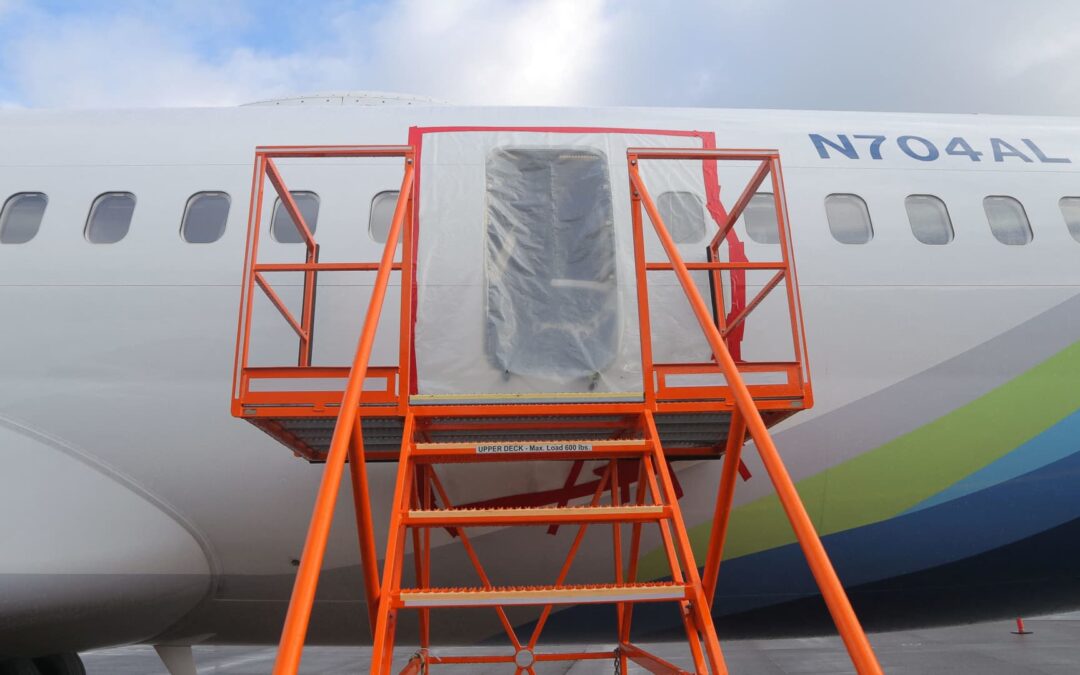The fuselage plug area of Alaska Airlines Flight 1282 Boeing 737-9 MAX, which was forced to make an emergency landing with a gap in the fuselage, is seen during its investigation by the National Transportation Safety Board (NTSB) in Portland, Oregon, U.S. January 7, 2024.
NTSB | Via Reuters
U.S. prosecutors plan to seek a guilty plea from Boeing over a charge tied to two fatal crashes of 737 Max planes, attorneys for the victims’ family members said Sunday, blasting a potential agreement as a “sweetheart deal.”
Justice Department attorneys and victims’ family members and their lawyers spoke for about two hours on Sunday, discussing the plan, lawyers said.
Boeing declined to comment, and it wasn’t immediately clear if it would accept a plea deal. A guilty plea could complicate its ability to get government contracts. Boeing is a major defense contractor.
The Justice Department didn’t immediately respond to a request for comment.
The DOJ said in May that it was reviewing whether Boeing violated a 2021 settlement that protected the company from federal charges tied to the 2018 and 2019 crashes of its best-selling 737 Max planes, which killed all 346 people on the two flights. Under that agreement, Boeing said it would pay $2.5 billion.
The DOJ revisited the agreement after a door panel blew out of a new 737 Max 9 midair during an Alaska Airlines flight in January, sparking a new safety and quality control crisis for one of the world’s two suppliers of large commercial airplanes. The so-called deferred prosecution agreement was set to expire days before the door panel blew out.
Boeing admitted in 2021 that two of its pilots defrauded the Federal Aviation Administration by concealing its addition of a new flight-control system to the planes before they were flown commercially. That system was later implicated in the two crashes.
The plea deal would require Boeing to pay an additional fine of about $247 million and call for the installation of an outside monitor on Boeing, according to Paul Cassell, one of the lawyers. Cassell called the new deal a “slap on the wrist.”









